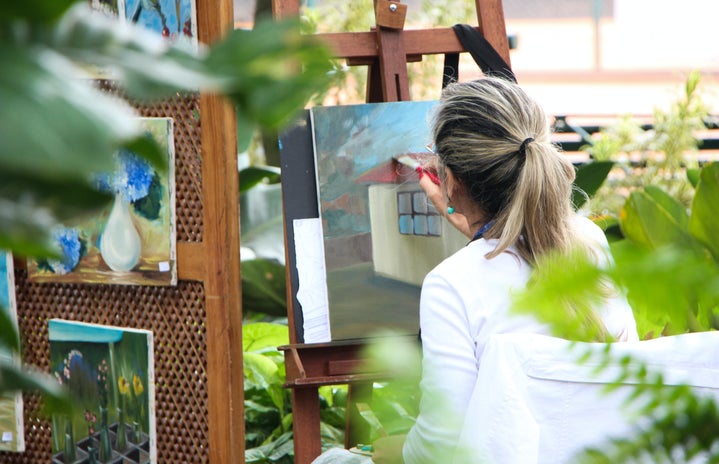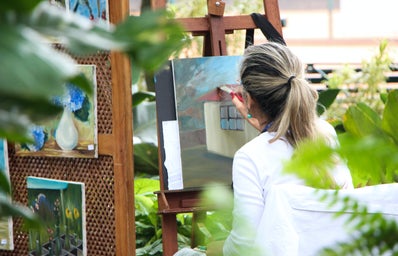We live in a world that runs off of communication. We are social beings; social interaction is necessary for human survival.
One of the most ancient and popular styles of communication is language. Language is a form of art, in which words can express certain emotions and phrases can paint specific ideas.
María Flores Barba portrays the importance of language and its contributions as a type of art; she is a Hispanic Studies graduate teaching assistant who teaches regular Spanish classes at Western University.
“[You can] create a whole world with just words,” Barba states.
I have had the amazing privilege to be Barba’s student in her Intermediate Spanish 2200 class. Her passion for Spanish is remarkable, as she focuses on covering grammar, punctuation, sentence structuring and vocabulary—the fundamentals of any spoken and written language. When asked why language is important in the world, Barba responded with an interesting point, discussing what it would be like without verbal expression.
We wouldn’t “even [be able to] communicate with ourselves. [It would be] unimaginable,” Barba mentions.
Everything around us operates in a communicative way, whether it be through texting or traditional face to face exchanges. There are so many languages that we utilize everyday that we often take for granted, just like most forms of social art. Most of us forget that language can involve any type of nonverbal or verbal communication: computer coding, body language, signs, images. Language is the basis for forming a working society. Though it may seem like common sense because our thoughts and text messages are in our dominant language, it is an imperative tool in the way we live our lives. Imagine if you thought in Spanish instead of English? Or forget traditional language altogether and replace the words with sounds instead. Life would look and feel completely different, wouldn’t it?
It seems that language truly has the ability to change lives.
“If I didn’t value my language, I wouldn’t be here,” Barba states.
Barba migrated from Mexico to attend Western and study, a fact she mentioned that has had an extreme impact on her life. She quite literally moved countries all because of her inspiration and appreciation for her native language. By honoring the beauty and art of Spanish, Barba has been able to create a new life for herself, simultaneously remaining connected to her cultural roots.
Moreover, Barba highlights how language can be musical as well, exemplifying it as an artistic entity. She informs that some languages sound more inviting than others, where some may sound like songs, others may sound more angry and aggressive, such as German.
“Sounds of [the] language defines the culture,” says Barba.
Barba specifically brought up Brazilian Portuguese because it is deemed as a “rhythm language,” in which it sounds musically pleasing to the ears; these types of languages have the ability to mentally transport you just as some songs might.
It brings “pictures to your mind, [like] imagining the beach,” Barba explains. Whether it is Spanish, French, Egyptian hieroglyphs, or even HTML code, language encompasses all parts of the human: the body, mind and soul. Language serves as a foundation for individuals to connect with one another. Language is a common art that is often ignored or underappreciated because of how much we truly utilize it on a daily basis. The absence of it would result in an absence of community, of unity, of flourishing human relationships.
Related Articles
Want more HCW? Check us out on social media!
Facebook, Twitter, Instagram, Pinterest




